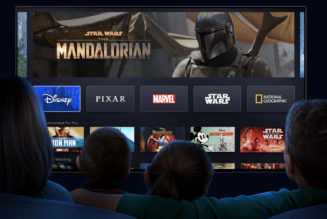You can find all sorts of strange tech on Indiegogo, but this fundraiser for an improved version of the virtual memory unit (VMU) for the Sega Dreamcast is one of the zanier gadgets I’ve heard about this year (via Notebookcheck). The company, Dreamware Enterprises, is in the process of developing the VM2, which it calls a “next-gen VMU for the Dreamcast.” It’s a one-to-one recreation of a niche accessory made for a failed console that it plans to release in black or white in the summer of 2023.
Some of the improvements seem great, like a higher-resolution LCD screen with backlighting, microSD card storage for offloading and injecting saves, a rechargeable battery with USB-C charging, and mini-game support. It’ll ship with PC connectivity, with its own GUI for Windows. The firmware and software of the VM2 are being developed by a single person named Chris Daioglou. The Indiegogo page states that production will take place in Greece.
%2Fcdn.vox-cdn.com%2Fuploads%2Fchorus_asset%2Ffile%2F24042109%2Fvm2exploded.jpg&w=2400&q=75)
It costs a whopping $114 to place an order for one, and I might just do it. Why, exactly, do I really want one of these? Because I’m one of those people who still has a Dreamcast in their entertainment system. I guess that I have an obsession with dead gaming gadgets.
Enough about me. I could see the VM2 being very popular among the Dreamcast’s surprisingly active player base. There are those who still play it for the enjoyment of some of the finest fighting games. And then there are the more involved fans who have figured out ways to host or join dedicated servers for online games that have been officially out of commission for several years. Not to mention, some indie developers are still making games for the Dreamcast. So, yeah, there’s an audience for this thing. And that audience has spoken with its cash. The campaign has 18 days left, yet it has sailed past its goal of raising $89,119.
I might get one because I also just really dig the original concept. In case you missed the too-brief Dreamcast years before it was squished by the PS2, the VMU stood out because, unlike other memory cards, it had a screen that could display contextual info on a per-game basis through a window on the console’s controller. It could display your health, your next football play, or just show off the game’s logo recreated in pixelated fashion as you played. And notably, you could yank it out of the controller and trade saves by linking up with another VMU. You could also play solitaire on it with its D-pad and two face buttons, take care of Tamagotchi-style pets, or play other mini-games installed from some of the Dreamcast’s titles. Look, it was a different time.
I’ve reached out to Sega for a comment on this product.








